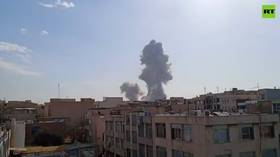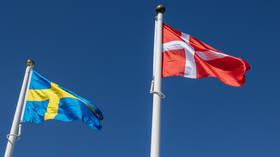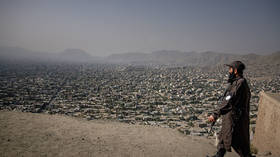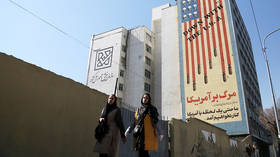Why Vladimir rules and Obama bombs
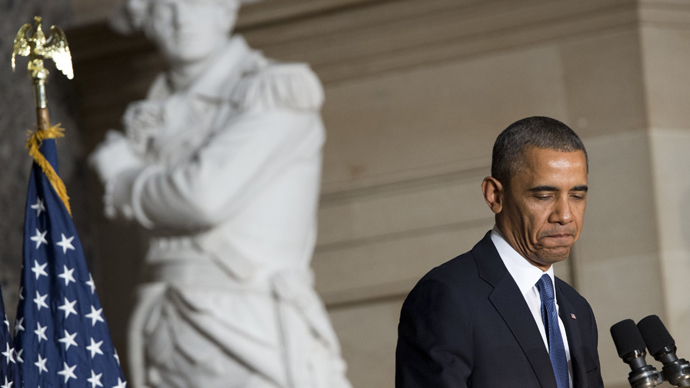
On both the NSA saga and the Syrian crisis, Putin played chess while Obama played checkers with himself – and lost.
Every year, Forbes magazine publishes its list of the heads of state, financial titans and business moguls who “truly rule the world.” Predictably, a sitting US president – the commander-in-chief of the most lethal armada in the history of the world – usually gets the top spot.
Not in 2010 though, when Barack Obama was overtaken by then Chinese President Hu Jintao in the aftermath of the Wall Street-provoked financial crisis. And not in 2013, when the winner is Russian President Vladimir Putin.
Not by accident, China and Russia are the most influential among the BRICS group of emerging powers. The US corporate media’s rankings such as Time’s Person of The Year may be irrelevant, and usually extremely provincial. But as a PR coup, American recognition of Putin’s soft power is priceless, even coming after de facto recognition by the overwhelming majority of the real ‘international community’: the developing world.
To its credit, Forbes stresses how “anyone watching this year's chess match over Syria and the National Security Agency leaks has a clear idea of the shifting individual power dynamics."

But it goes way, way beyond that. Putin let the extremely
sensitive Edward Snowden case be handled with total, absolute
legality and transparency, and on top of it without gloating over
American impotence. Putin literally saved the Obama
administration, at the last minute, from yet another Middle-East
war of potentially devastating consequences – a geopolitical
juncture as dangerous as the Cuban missile crisis.
Predictably, US Think Tankland – with its collective IQ atrophied by decades of hubris and the normalization of the Orwellian/Panopticon complex – has had a hard time facing the facts. Moscow does not need to try to portray the hyperpower as weak and/or untrustworthy. The facts speak for themselves – from the galloping towards war because of a fictitious ‘red line’ recklessly concocted by Obama to the ubiquitous spying on ‘friends’ and potential foes alike.
During a House Intelligence Committee hearing, National
Intelligence Director James Clapper was adamant that the NSA and
the CIA cannot spy on any political leader via his/her private
mobile phones without permission from the White House. So no
matter the spin, Obama knew, among others, about the spying on
Brazilian President Dilma Rouseff and German Chancellor Angel
Merkel.
You don’t need to have read Orwell to note this is yet another instance of the imperial Masters of the Universe worldview. It’s ‘legitimate’ to spy on Americans. It’s ‘legitimate’ to spy all over the global South – including the more influential BRICS.

Call it electronic neo-feudalism – where no one, anywhere is a real citizen fully capable of exercising his/her rights; just some sort of un-glorified peasant. With Merkel the story is slightly different; she’s part of the Masters of the Universe club, and that’s the only reason why some in Washington are wondering if – in a very mild way – the NSA may have gone too far.
Enough exceptionalism
That famous September op-ed in The New York Times, in which Putin blasted American exceptionalism, reverberated wildly all across the developing world because it worked like a primal scream. The Chinese, naturally cautious, would never be the first to articulate it so blatantly (they did it only later, when they called for a ‘de-Americanized’ world, with an economic emphasis rather than political). Forget about the Europeans, or even Brazil. Only Putin had the authority to announce what the overwhelming majority of the planet had been thinking for quite a while.
Nobody can stand US exceptionalism anymore. Yet another example; the duly spied-upon UN General Assembly has voted - overwhelmingly - to condemn the US commercial, economic and financial embargo against Cuba for the 22nd year in a row. The vote was 188-2, with three abstentions. Only the US and Israel voted against it.

While the dogs of war and surveillance bark, the silent Russian
caravan passes. Putin is extending Russian influence in Central
Europe as well as solidifying the partnership with Germany. The
Chinese-Russian strategic partnership is proceeding smoothly.
Russia is back as an influential player in the Middle East. Putin
is trying to create a viable, multilateral alternative to
imperial US diktats. This is as much about soft power as hard
power.
The proverbial US Think Tankland Cassandras will be left endlessly carping about the ‘stagnating’ Russian economy, ethnic and religious ‘tension’, ‘political atrophy’ because of Putin’s ‘authoritarianism’, and assorted ills. Nonsense. This essay by top blogger The Saker meticulously outlines the key plot twists and undercurrents of the past 20 years of US-Russia relations – including the now-proverbial Putin demonization.
Back to the facts on the geopolitical ground. Putin has seized
the moment and now is arguably the key actor trying to build an
emerging, alternative multilateral order. As for imperial lame
duck Obama, he seems destined to keep bombing in more ways than
one.
The statements, views and opinions expressed in this column are solely those of the author and do not necessarily represent those of RT.
The statements, views and opinions expressed in this column are solely those of the author and do not necessarily represent those of RT.



